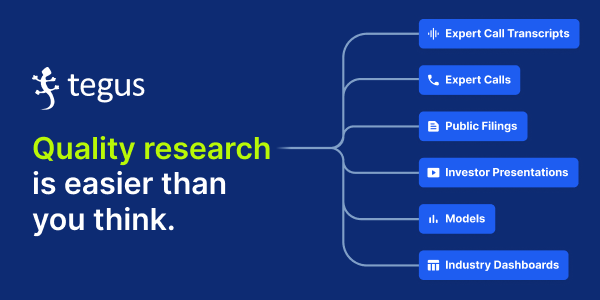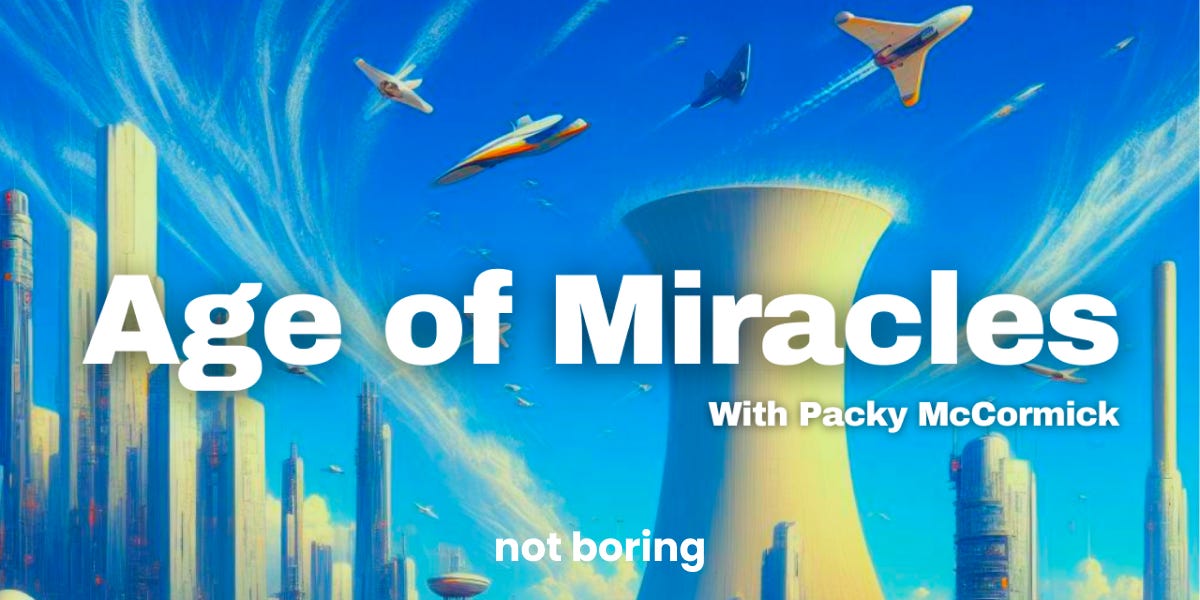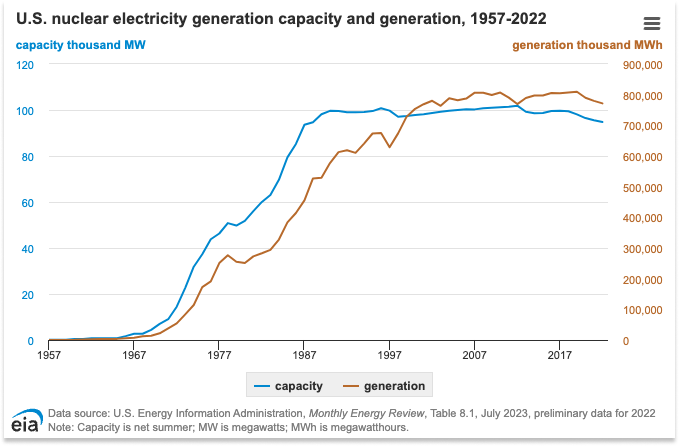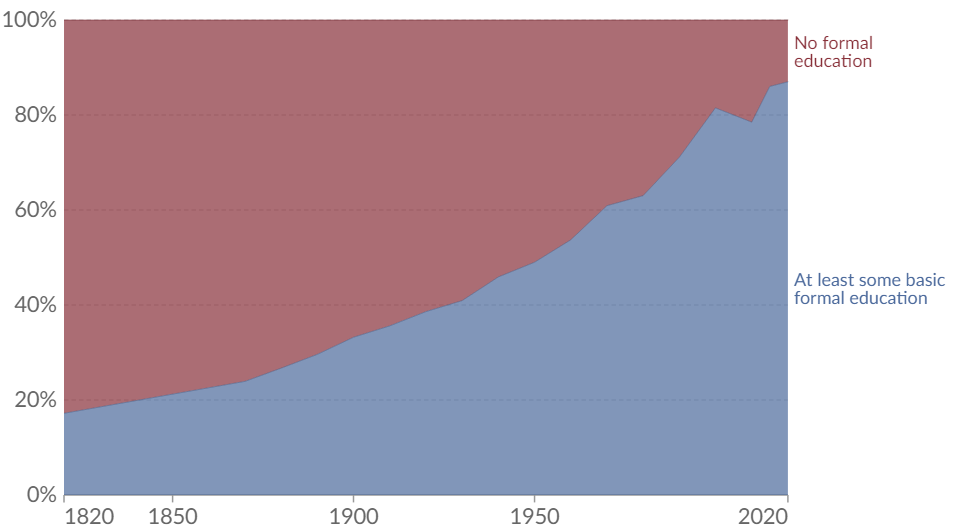Not Boring by Packy McCormick - Age of Miracles
Hi friends 👋, Happy Friday and welcome back to our 66th Weekly Dose of Optimism. Packy here for a Weekly Dose first: an essay takeover. First things first, I’m launching a new podcast today, Age of Miracles, along with Julia DeWahl and the incredible Turpentine team – Nancy Xu, Amelia Salyers, Tom Hollands, Justin Golden, Jake Salyers, and Erik Torenberg. It’s more than a dude with a mic talking to other dudes, and we’ll get to what it is and why we’re doing it in a second, but first, my producers (💁🏻♂️) will kill me if I don’t beg you to listen, like, subscribe, and share. Today, we’re releasing our first two episodes. You can find them on Apple, Spotify, YouTube, and wherever you listen to podcasts: 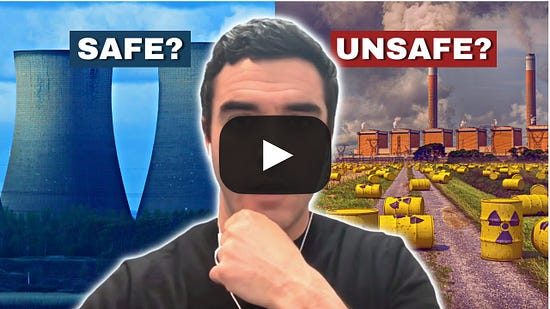 We want this to spread outside of tech, so if you like it, I’d really appreciate it if you shared with a few friends who you think might, too. Don’t worry: we’re not going to short you on the optimism. Dan dropped five stories at the bottom, and it was a good week for the optimists. My bet is, the weeks are going to keep getting better if we fight to make it happen. Let’s get to it. Today’s Not Boring (and Age of Miracles) is Sponsored by… Tegus Imagine a day where every minute of your research is well spent. Where information gives you the freedom to be bold. Tegus is research without all the tedious hunting, calling, parsing, and pasting. You get access to expert calls, custom financial models, and public filing data— all in one place. The time for a more powerful perspective is here. Do what you do best, even better. Age of MiraclesIf you’re reading this, you have the chance to live in an Age of Miracles. Of the 100 billion people who have walked the earth, we’re the lucky ones who get to experience the best part. But it’s going to take some work. I want you to close your eyes and imagine with me. Metaphorically, of course. We don’t have the technology to read with our eyes closed… yet. OK, ready? The year is 2073. It’s a cool spring day, light breeze, 73 degrees. The world hasn’t ended. In fact, it’s better than ever. You’re eighty years old, but you feel like you did in high school, better even. All the energy of youth with the wisdom of age. It’s a Tuesday. You have a light work day, so light that your AIs can handle everything. You’re free to play. They’ll ping you if they need your input. You step out onto your street, a street once filled with parked cars, and see only walkways, fountains, and trees. You look up and see tall architectural wonders all around you, facades as breathtaking as Sagrada Familia hiding the spacious homes within. Your friends invite you to join them on their hypersonic for lunch in Marrakech, but you decline. Your kids are free and asked if you’d do lunch with them and your grandkids at a spot nearby. You stroll for a while, lost in thought, Neuralink silenced, just enjoying the day. You feel guilty, for a second, that your life is so good – old habit – before remembering that most peoples’ lives are pretty great, too. 11 billion people on the planet, ten million more on the Moon, another two million brave souls on Mars, and millions more bopping around somewhere in orbit, and there’s enough for everyone. It was touch and go there, for a while, but between the desalination, the Von Neumann machines, the terraforming, the flying cars, the MeMeds, and the countless marvels since, everyone has all of the space and things they need. When you arrive, almost accidentally, at the restaurant, your daughter knocks you out of your reverie with a hug. Your grandkids seal the deal with squeals. You step inside and grab a table. In the place of menus, you simply look around to see which ingredients the restaurant is growing today and ask the server for whatever you wish, prepared however you wish. The kitchen staff, some bots and some people who just love to cook, whip it up and serve it hot. (Bots handle all the dishwashing; no human likes doing dishes.) While you wait for your food, you joke with your grandkids and plan the upcoming Tokyo family trip with your son. Then you sit back and smile so cheesily that your kids give you that look. Let them. You’re happy. You are living in an Age of Miracles. Ok you can open your eyes. Welcome to Age of Miracles. The world of 2073 I just described is admittedly uber-utopian. But I believe three things:
That’s why we’re launching Age of Miracles, a narrative podcast where each season, we go into all the nitty gritty details about one sci-fi-sounding industry to understand what it will take to go from idea to innovation to implementation to impact. The first season, with two episodes out today, is about nuclear energy, both fission and fusion. But first, let’s take each of those three beliefs in turn. An Age of Miracles is Entirely Possible in Our LifetimesWhether the world in 2073 looks exactly like the one I described or not, I think it’s going to be a better world for more people. The march of history suggests that things improve over time. The coolest part of my job is that I get to glimpse the future by seeing what entrepreneurs are working on today. And I bring good news from the future: most of the futuristic technology I described is being developed as we speak. Knowledge about it just isn’t evenly distributed. Chances are, I’m dramatically undershooting what 2073 will look like because I can’t hold the ideas of millions of current and future entrepreneurs in my brain. Technology is exponential, it compounds. The wildest technology that researchers and entrepreneurs are working on today will be inputs to even wilder technology in the future. I do know that energy is going to be an important input. With it, we can power the growing demand for AI. We can electrify a robotic labor force that makes everything cheaper while freeing us up to pursue jobs that seem as luxurious and silly to us as “newsletter writer” would have seemed to someone in 1973. We can travel more quickly, cheaply, and easily around the earth, and out into the solar system. We can pull CO2 out of the sky, desalinate water, and breathe life into barren landscapes. We can reduce poverty, extend healthy lives, and lower the incentives for conflict. Will there be problems? Of course! We’re humans. We’ll still fight. We’ll still compete for status. We’ll still hurt each other. We’ll still want more. We’ll never be satisfied. But all of that humanness and desire will propel us ever forward and impel us to keep improving. Forward momentum itself is a good thing – read The New Yorker’s excellent China’s Age of Malaise to see what happens when it disappears. An Age of Miracles won’t see us listlessly popping soma a la Huxley or slovenly guzzling slurpees in hover chairs a la Wall-E. An Age of Miracles isn’t an end; it’s the means to explore even further. A culture that’s satisfied with stagnation or degrowth is a dead culture. Progress imbues us with energy and vitality, as individual people and as a civilization, which is, at the end of the day, a group of billions of individual people. If you focus on the headlines and the culture wars, if you listen too closely to the pessimists (who sound smarter than they really are), it’s easy to believe that things are getting worse. They’re not. If you zoom out, things get better. And they can keep getting better. We can live in an Age of Miracles. But it’s not guaranteed. Getting There is Going to be Hard, Messy, and ComplexDeveloping the technology is the easy part. That’s easy for me to say as a non-technical person who gets to simply write about the results of all of the hard work of millions of brilliant technologists, but in the fullness of time, it’s true. Technology has an inevitability to it. At some point in the future, we’ll have Dyson Spheres and Matrioshka Brains and all sorts of things pulled straight from the pages of science fiction… if we don’t get in our own way. Getting sci-fi technology to work is just the first leg in a long relay race that involves governments, construction, supply chains, regulators, advocates, investors, entrepreneurs, and opponents. My co-host, Julia DeWahl, is a force of nature, someone who knows how to build hard things and how to explain nuclear energy: early Opendoor, Starlink at SpaceX, co-founder of nuclear startup Antares, and a nuclear advocate. We teamed up to do the first season of Age of Miracles on nuclear energy because energy is at the root of everything, but also because it proves that building a technology doesn’t guarantee its ubiquity or impact. Nuclear energy is a miracle technology. If we discovered it today, there would be parades in the streets. By splitting heavy atoms apart, we can release enough clean energy to power cities for decades. It’s energy dense: one kilogram of uranium-235 can yield about as much energy as 1,500 - 3,000 tons of coal, around 2 million gallons of gasoline, or roughly 50,000 barrels of oil. It’s reliable baseload power, the good stuff. It’s a boon for energy independence: it doesn’t require imports of fossil fuels, and it doesn’t require the sun to shine or the wind to blow. And it’s safe! Three orders of magnitude safer than coal. And yet, nuclear has stalled. Nuclear capacity flatlined in the United States in the 1980s. A lot of factors contributed to nuclear’s stagnation, and we go deep on them in Episode 2. Environmentalists, overregulation, the oil crisis, construction delays, cost overruns, disaster fears, and stalling energy demand all played a role. The sad fact is, some of nuclear’s most vocal opponents knew that nuclear could provide cheap, clean, abundant energy, and they opposed it for those reasons. Paul Ehrlich, the author of The Population Bomb, said it explicitly: “Giving society cheap, clean, and abundant energy would be the equivalent of giving an idiot child a machine gun.” The degrowth movement isn’t an invisible boogeyman; it’s a real and powerful enemy that needs to be defeated if we want to live in an Age of Miracles. Nuclear’s history is a warning. AI Doomers are running the same playbook as we speak. They’re selling fear, and fear sells. The press fuels it, people eat it up, and before you know it, a non-event like Three Mile Island becomes an excuse to block progress for the sake of the people. We need to learn our history so that we don’t repeat our mistakes. We techno-optimists must drown out amorphous fear mongering with facts, proof, and hopefulness. And then, of course, we need to do whatever it takes to build. Fortunately, as the world demands more clean, reliable, independent energy, we have a shot at applying the lessons to nuclear itself. Today, there’s a nuclear renaissance underway. But bringing more nuclear capacity online isn’t as simple as recognizing that nuclear is good, actually, or demanding more nuclear. It will require a hard, messy, complex process of unwinding the damage that has been done and the regulations that have ratcheted. It will require reanimating an atrophied nuclear workforce. And most importantly, it will require building nuclear capacity in a way that’s cost competitive with other energy sources and that doesn’t put the utilities that order reactors out of business. That’s the stuff we explore in the first half of Season 1 of Age of Miracles. Figuring out how to scale new technologies and enable them to compete in the free market is the crux of creating an Age of Miracles. It’s true in nuclear, although a little extra hard because it has to fight through fifty years of opposition, and it’s true of all of the other technologies we’ll explore in future seasons, from biotech to crypto to advanced manufacturing and beyond. It will certainly be true in fusion, which we’ll explore in the second half of this season. Harnessing the power of the sun for use on earth will be a scientific miracle when it happens, but that will be the starting point. From there, we’ll need to figure out clear regulation, reactor manufacturing, commercialization, and all of the complexities that go into growing a nascent industry that threatens the largest companies in the world. If a new technology is sufficiently impactful, the battle with degrowthers and incumbents will be intense, and we need to understand exactly what it will take to win. Narrative MattersLook, I’ll be the first to admit: the world does not need another dude with a podcast. Of all of the things that will contribute to bringing about an Age of Miracles, researchers, entrepreneurs, engineers, competent government officials, policymakers, and manufacturers are at the top of the list. But you gotta work with what you got. My comparative advantage, where I can contribute the most, is explaining what all of those people are doing, why it’s important, and where they could use our help. So I’m going to do that as well as I can, in this newsletter and on Age of Miracles, with the help of experts like Julia and our heavy-hitting lineup of guests experts and practitioners. I’m biased, but I believe narrative really matters. Losing the narrative war in the 1970s is a big part of what got nuclear in this mess in the first place. The other side fights with narrative, and we need to fight back. As Reggie James put it in The New Technologist Manifesto:
While the builders build, we can provide narrative air cover. That doesn’t mean propaganda and it doesn’t mean glossing over challenges. Yelling “MORE NUCLEAR” isn’t helpful. It means addressing the opportunities and the challenges, and honestly assessing the benefits and the costs. It means respecting the nuance and appreciating that a lot of very smart people have already poured their lives into addressing this; if it were easy, they would have gotten it done already. It means understanding that nuclear can’t win on vibes alone, that it has to win by being cost competitive, safe, and predictable, and assessing all of the paths that might get us there. And it even means letting people who think other energy sources offer a better solution tell us why they think we’re wrong. That’s why we decided to do this as a podcast instead of a newsletter. A podcast lets us hear directly from the people on the ground, in their own words and with their own enthusiasm. Over the past few months, we’ve recorded dozens of interviews and through the end of the season, we’ll record dozens more. We can get deeper in ten podcast episodes than I can in even the longest Not Boring essay, and I think that depth is appropriate for important, complex industries. Making a narrative podcast is hard. It’s a lot harder, and a lot more work, than I realized when I set out to do this. But it’s worth it. I’ve learned a ton talking to so many smart people, and we’ve packaged those conversations up into an information-dense primer that we hope can be the best starting point for anyone looking to understand nuclear energy – its history, present, and future. Nuclear energy is in the zeitgeist right now. We need a lot of energy to power everything we want to do, and nuclear (both fission and fusion) will be key. Germany’s decision to shut down nuclear plants and turn on coal forced the world to rethink the technology. Microsoft is looking to use small modular reactors to power its data centers. Fission and fusion companies have attracted billions of dollars in VC funding. The Lawrence Livermore Lab took the world by storm when it achieved fusion ignition in late 2022. The energy transition – or ELECTRONAISSANCE – means that trillions of dollars are up for grabs, and cheap, abundant energy will unlock trillions more and unlock the Age of Miracles. I hope that Age of Miracles inspires you to go address some of the biggest challenges in whatever way you can. It should expose some of the degrowth playbook so you can recognize it and fight it when you see it in your own industry. And if nothing else, I hope that it provides a little dose of realistic optimism and a renewed faith in the smart, pragmatic, hard-working people dedicating their lives to building companies and systems that can improve the lives of billions. Not Boring’s mission, and my personal mission, is to make the world more optimistic. It’s not just about feeling good. Optimism shapes reality, as does pessimism. If we want to live in an Age of Miracles, we need to believe that it can happen and understand how to make it happen. We need to flip the narrative from degrowth to growth. That shift is underway. You can see it in the e/acc movement and Pirate Wires and Marc Andreessen’s Techno-Optimist Manifesto. People are waking up to the fact that to stop growing is to doom humanity to a meager, violent, zero-sum future. In tech, acceleration is becoming the default stance. But to clear the path to an Age of Miracles, that optimism needs to spread outside of tech. Nuclear is a prime example of the fact that those who oppose progress are willing to bend the truth to push their agenda. The problem is, they’re consistently wrong. Studying nuclear is a nuke-pill that fundamentally alters how you see the growth vs. degrowth debate. When you dig in, you realize that this isn’t a debate between two sides with equally legitimate opinions. Nuclear is three orders of magnitude safer than coal. We didn’t run out of food with more humans; humans came up with the Haber-Bosch Process. When you build more housing, more people can afford housing. Free market capitalism wins across practically every measure worth measuring. Technology is good. Capitalism is good. Growth is good. And growth requires a lot of energy, from electrons and from humans. Age of Miracles is just a podcast, but I hope it can play a part in shifting the conversation. Share it with your friends outside of tech. Spread the facts and optimism to counter the baseless doom. We can live in an Age of Miracles, but we have our work cut out for us. Weekly Dose of Optimism #66(1) First malaria vaccine slashes early childhood mortality Meredith Wadman for Science
(2) ‘Mind-blowing’ IBM chip speeds up AI Davide Castelvecchi for Nature
(3) Personal aviation is about to get interesting By Eli Dourado
(4) Global Education By Hannah Ritchie, Veronika Samborska, Natasha Ahuja, Esteban Ortiz-Ospina and Max Roser for Our World in Data
(5) Lululemon’s Founder Is Racing to Cure the Rare Disease Destroying His Muscles Ari Altstedter for Bloomberg
That’s all for today. We’ll be back in your inbox on Tuesday. Have a great weekend! Thanks for reading (and listening), Packy and Dan |
Older messages
Weekly Dose of Optimism #64
Tuesday, October 24, 2023
Age of Miracles, Solar Resolution, Sturgeon, Purple Cloth, Charles Feeney, Loom
Weekly Dose of Optimism #65
Friday, October 20, 2023
Peace in the Middle East, Techno-Optimism, Scaling Nuclear, Collisons, Direct File
Riskophilia
Thursday, October 19, 2023
Learning to Love Risk
Weekly Dose of Optimism #63
Friday, October 6, 2023
Malaria Vaccine, Nobel Prizes, Focused Ultrasound, Poverty Reduction, Safe Superintelligence, Boats
Anduril: Acquiring Prime
Tuesday, October 3, 2023
Analyzing Anduril's M&A Strategy and the Future of Defense
You Might Also Like
🔮 $320B investments by Meta, Amazon, & Google!
Friday, February 14, 2025
🧠 AI is exploding already!
✍🏼 Why founders are using Playbookz
Friday, February 14, 2025
Busy founders are using Playbookz build ultra profitable personal brands
Is AI going to help or hurt your SEO?
Friday, February 14, 2025
Everyone is talking about how AI is changing SEO, but what you should be asking is how you can change your SEO game with AI. Join me and my team on Tuesday, February 18, for a live webinar where we
Our marketing playbook revealed
Friday, February 14, 2025
Today's Guide to the Marketing Jungle from Social Media Examiner... Presented by social-media-marketing-world-logo It's National Cribbage Day, Reader... Don't get skunked! In today's
Connect one-on-one with programmatic marketing leaders
Friday, February 14, 2025
Enhanced networking at Digiday events
Outsmart Your SaaS Competitors with These SEO Strategies 🚀
Friday, February 14, 2025
SEO Tip #76
Temu and Shein's Dominance Is Over [Roundup]
Friday, February 14, 2025
Hey Reader, Is the removal of the de minimis threshold a win for e-commerce sellers? With Chinese marketplaces like Shein and Temu taking advantage of this threshold, does the removal mean consumers
"Agencies are dying."
Friday, February 14, 2025
What this means for your agency and how to navigate the shift ͏ ͏ ͏ ͏ ͏ ͏ ͏ ͏ ͏ ͏ ͏ ͏ ͏ ͏ ͏ ͏ ͏ ͏ ͏ ͏ ͏ ͏ ͏ ͏ ͏ ͏ ͏ ͏ ͏ ͏ ͏ ͏ ͏ ͏ ͏ ͏ ͏ ͏ ͏ ͏ ͏ ͏ ͏ ͏ ͏ ͏
Is GEO replacing SEO?
Friday, February 14, 2025
Generative Engine Optimization (GEO) is here, and Search Engine Optimization (SEO) is under threat. But what is GEO? What does it involve? And what is in store for businesses that rely on SEO to drive
🌁#87: Why DeepResearch Should Be Your New Hire
Friday, February 14, 2025
– this new agent from OpenAI is mind blowing and – I can't believe I say that – worth $200/month
